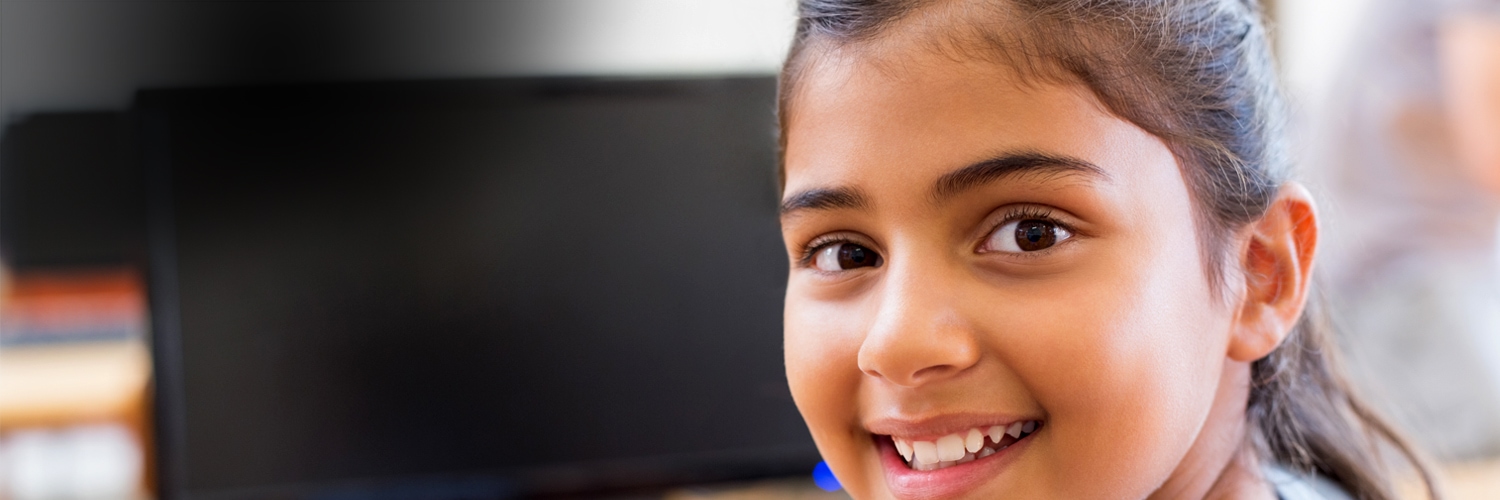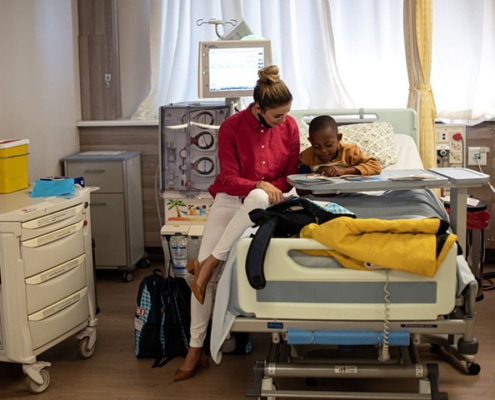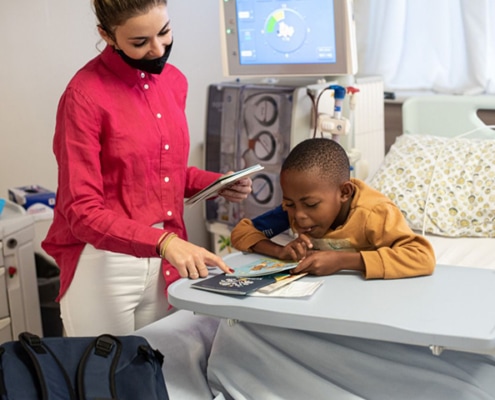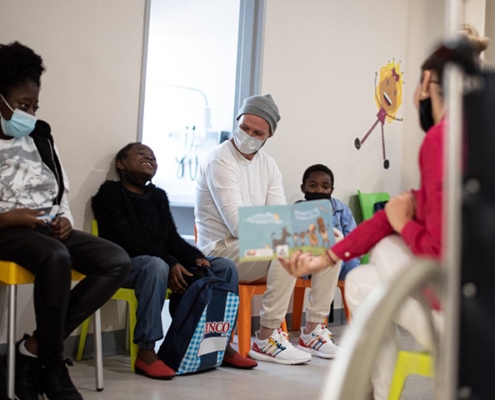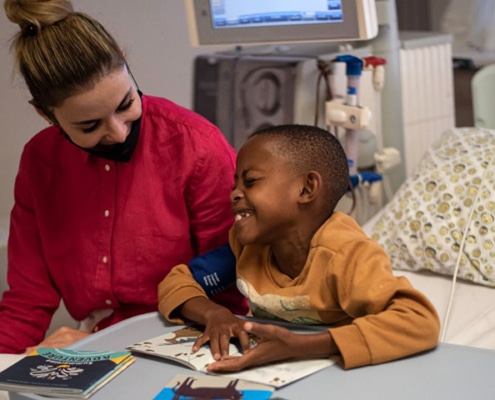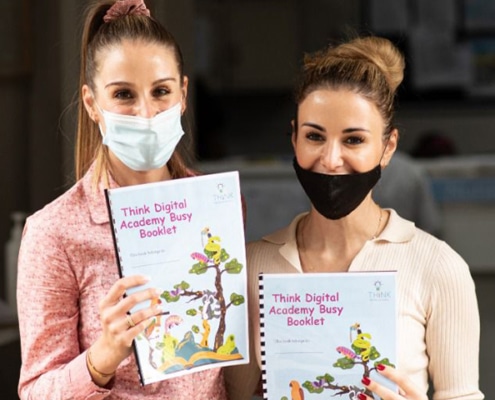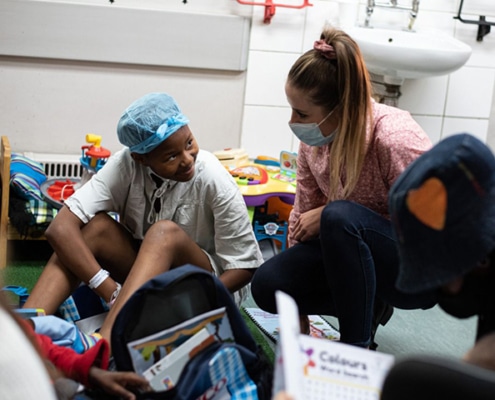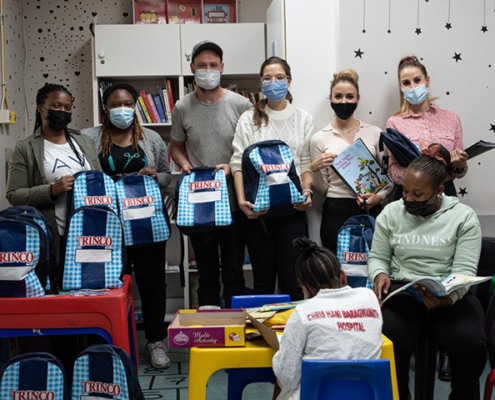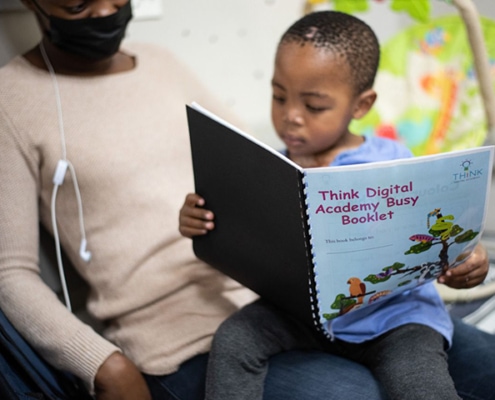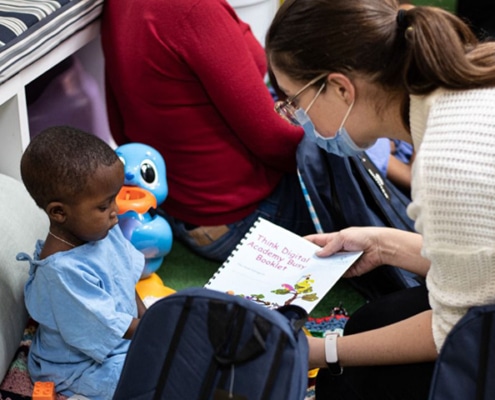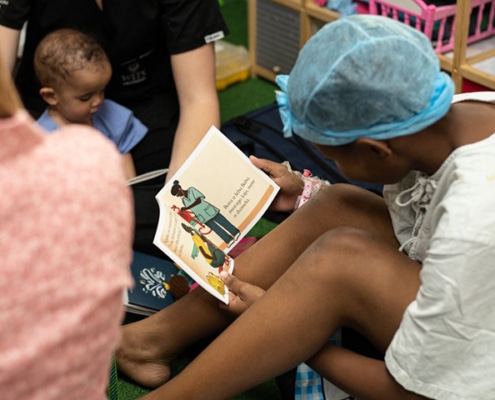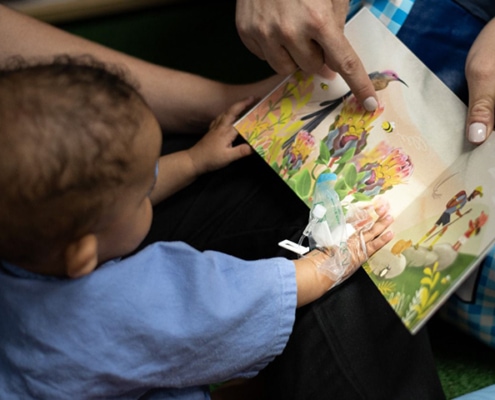Reading for a cause
Think Digital Academy is excited to announce that we are a proud partner of the Nelson Mandela Children’s Hospital, in collaboration with The Doodle Foundation.
Who is the Nelson Mandela Children’s Hospital?
In 2004, the city of Johannesburg, South Africa, opened its doors to honour the memory of South Africa’s Apartheid hero, Nelson Mandela. An initiative as ambitious as Madiba himself.
Nelson Mandela Children’s Hospital is a state-of-the-art, 200 bed specialist paediatric hospital that provides caring, child- and family-centred environment to treat and support critically ill children
Think Digital Academy has joined hands with The Doodle Foundation and the NMCH to further their missions and provide necessary educational support to those in the NMCH who are either unable to attend school, or who miss copious amounts of learning time due to their illnesses.
NMCH serves critically and chronically ill children from across all over South Africa. The hospital serves up to 200 children at one time.
World Book Day – 23 April 2022
Having a child in hospital is stressful for both the child and the parents. Along with learning about their child’s illness and finding the best methods of care, parents often struggle with exhaustion, confusion and fear that their child’s condition could get worse.
While we can’t do everything for everyone everywhere. But we can do something for someone, somewhere.
When the world is heavy and its problems are every bit as big as it is, sometimes we feel hopeless and helpless.
But hope is not a feeling – it’s not a tidal wave of joy in the middle of a problem.
Hope is not the magic wand that makes the problem disappear.
Hope is the lifeline that can keep you from being overwhelmed by the problems in your life.
Hope is love. And love is hope.
One of the most important things we can do in a time of collective turmoil, is to turn inwards and choose to actively participate in the healing of those who need it around us.
Think Digital Academy, together with The Doodle Foundation set out on Thursday and Friday, 21 and 22 April to donate and read books to the children in hospital, in celebration of World Book Day.
The books brought joy and offered the children an opportunity to escape their realities, even if only for a short while. Reading opens the door to adventures and learning new things. The children got to feel the joy of being lost in a good book and for a few hours, It’s like the real world had fallen away.
Helping sick children cope with isolation
Isolation. A word we are all probably more familiar with now due to the COVID-19 pandemic, but something a parent of an immunocompromised child knows well. Whether a child is in isolation due to a recent hospital stay, surgical procedure, chemotherapy treatments or another reason that weakens their immune system, separation from others is crucial to reduce a child’s chances of catching anything from the outside world. For a child, coping with isolation can be difficult, especially when faced with feelings of stress and loneliness.
Supporting your child during self-isolation
As a parent, here are a few ways that you can help your immunocompromised child cope with isolation:
Routinely check in and talk about your child’s feelings
Not all children respond to stress the same way, so it’s more important than ever to have clear communication between you and your child when they are in isolation. Ask your child how they’re feeling and listen to what they say. Let them know it is okay if they feel upset sometimes and work together to find healthy ways to feel better, like reading, crafting, listening to music or watching their favourite TV show.
Take advantage of technology to safely socialise
Keep up with family members and friends who your child would normally interact with by connecting with them via FaceTime, Zoom or similar apps. Your child won’t skip a beat and will continue to build relationships virtually with the special people in their lives.
Set up a schedule and create structure
Many adults say that routine is the key to success, and it’s no different for a child, especially one in isolation. Establishing and maintaining routines will help your child feel safe and in control of the situation around them. Find a creative way to display a daily schedule: wake-up and bedtimes, meals, school time, play time, etc.
Practice mindfulness
Studies show that introducing children to meditation can help them learn how to calm their minds and use healthy coping skills that will last a lifetime. Consistent practice of meditation can improve your child’s sleeping habits, attention span, stress management, mood and overall, well-being.
Prioritise your mental health
Parents, this tip is for you. Remember that this is a tough time for everyone involved, including you. Take breaks, get plenty of sleep, exercise and don’t be too hard on yourself. Be a role model and take care of yourself for your child.
At Think Digital Academy, we provide families with the resources they need and a safe space for children who are ill but can continue learning, A space where they can “break away” mentally from the hospital yet be available at a moment’s notice. Our curriculum is flexible and can be tailored to suit every child’s different needs.
Subscribe to our mailing list to ensure you don’t miss out on any of our upcoming books and stories.


